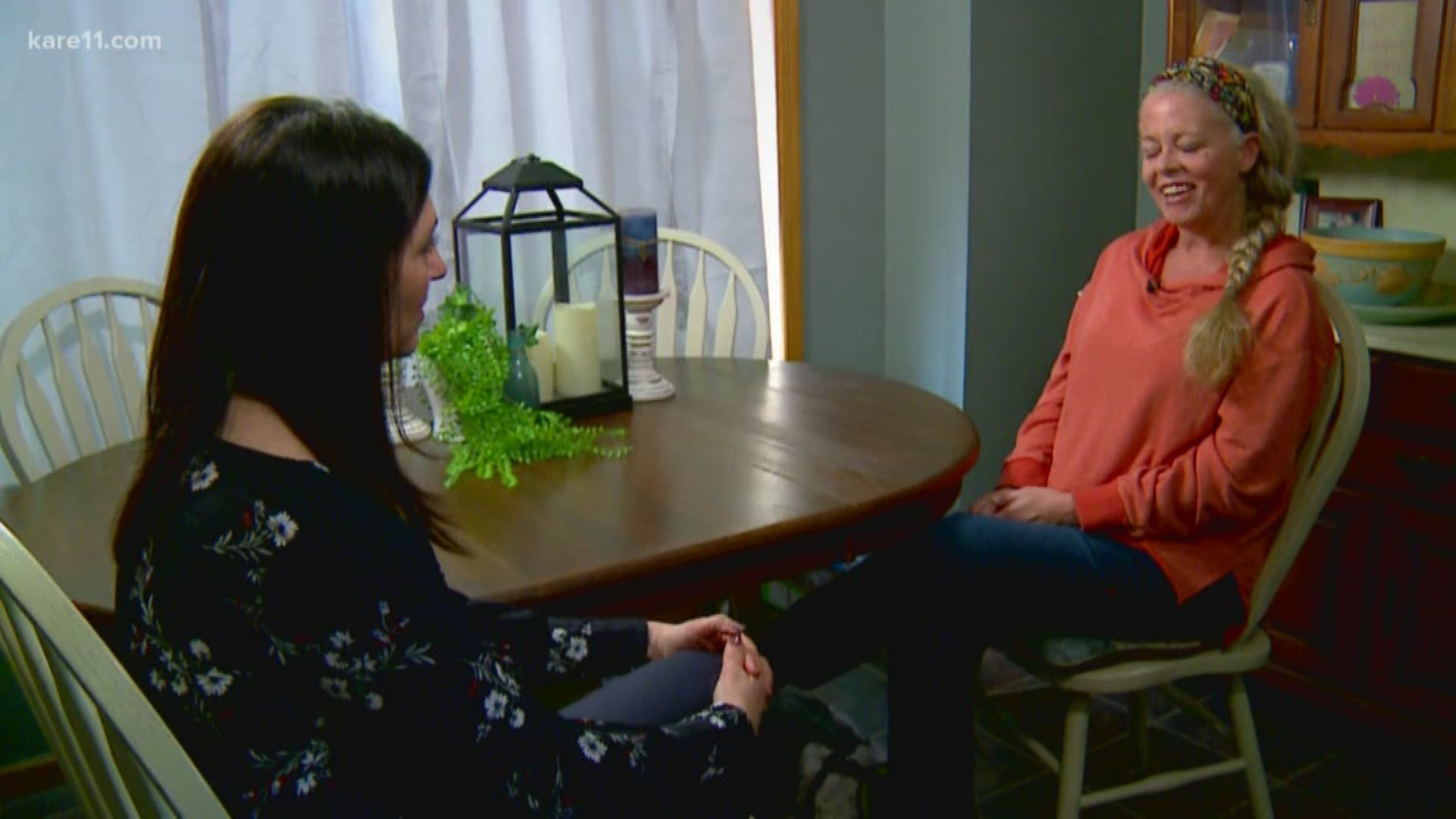There is an opioid epidemic in this country. That is undisputed. But in the effort to solve that problem, another one was created. A group of people who have become the victims of unintended consequences. Change may be on the way for those who truly need opioids for pain.
"I've been hanging in there. I've been doing the best I can with what I have. I'm still looking for trying to get the specialized treatments that I need,” says Cammie LaValle.
Cammie is a fighter, and not just for herself, she’s fighting for those like her, who can’t.
“There's individuals who have a medical necessity for these medications and they've been tapered to the point that it's impacted their quality of life, negatively impacted their quality of life,” says LaValle.
Cammie suffers from several conditions including Complex Regional Pain Syndrome. She's tried every treatment possible but opioids give her some relief so she can function. A few years ago, those drugs became harder to obtain. In 2016 the CDC put out guidelines for prescribing opioids, then states started adopting even stricter guidelines, clinics, pharmacies, insurance companies, they all followed suit. The result? a one-size fits all approach to pain management.
It turned out people with diseases like Multiple Sclerosis, severe Arthritis, even cancer were suddenly cut off, or forced to taper their pain medication, to a point that made them unable to manage. Cammie has been working to get the Minnesota Department of Human Services and the Opioid Prescribing Work group to at least hear their concerns. It worked.
DHS gave us a statement today that says in part, "Since the work group developed the opioid prescribing guidelines that were announced two years ago, more evidence has developed about the dangers of rapidly tapering or cutting off patients from high opioid doses. The work group is open to recommending updates to the guidelines.”
Even further, they will host a public meeting next week to let people talk.
“Obviously not everybody has a medical necessity for these medications. They're very strong medications, but if somebody does, and they've lost access to that, you need to find out why and get your voice heard,” says Cammie.
The meeting is next Monday, December 2nd from 7 to 8:30pm at the Department of Human Services in St. Paul.
From DHS email: You are invited to a meeting with Department of Human Services staff, representatives of the DHS Opioid Prescribing Work Group and patients who take prescribed opioids to treat chronic pain. Our purpose in calling the meeting is to hear patients’ lived experiences relating to opioid treatment. The OPWG has heard public comment from some patients, and this meeting is an opportunity to hear more. Comments will be welcome in person or by phone during the meeting. You may also submit your comments in writing to: dhs.opioid@state.mn.us.
· DATE: Monday evening, December 2, 2019
· TIME: 7:00 – 8:30 p.m.
· LOCATION: Room 2370, DHS’ Andersen building, 540 Cedar St., St Paul. The two entrances that will be open are the main entrance facing Cedar Street and the entrance from the parking ramp. Proceed to the 2nd floor by way of the large staircase or the single elevator tucked beneath the staircase. Directions are available on DHS’ website.
· PARKING: After 4:00 p.m., you may park for free in DHS’ employee parking ramp, the entrance to which is on the east side of the building on Minnesota Street.
· GREEN LINE: Exit on Tenth Street. The Andersen building is directly to the east of the train stop. (As you are facing the Capitol, the Andersen building is to your right.)

